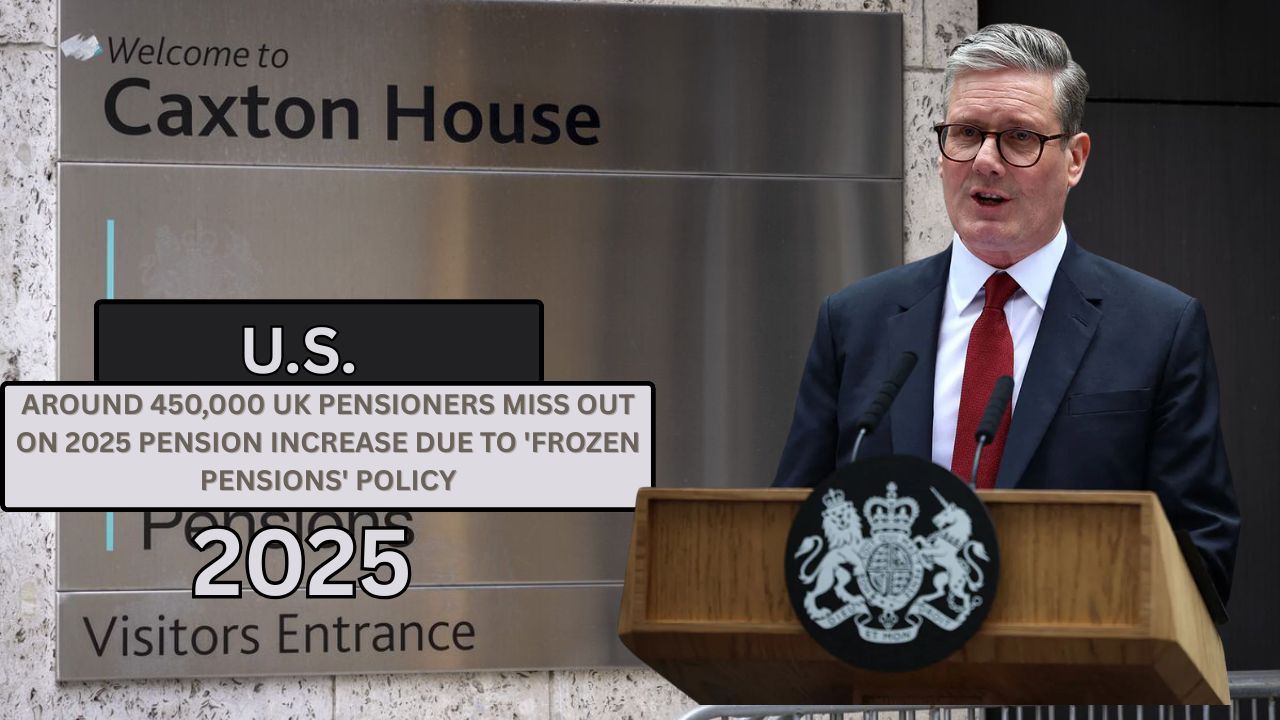As of April 2025, the UK government increased the State Pension by 4.1%, providing an annual boost of around £470 for eligible retirees. However, an estimated 453,000 British pensioners living overseas will not see a penny of this increase, sparking renewed criticism of the long-standing “frozen pensions” policy enforced by the Department for Work and Pensions (DWP).
While the pension hike brings welcome relief to millions living in the UK and certain overseas territories, it has also exposed growing inequality in how pensioners are treated based on where they reside.
What Is the Frozen Pensions Policy?
The “frozen pensions” policy refers to the UK government’s refusal to increase State Pension payments for retirees living in countries that do not have a reciprocal social security agreement with the UK. This means their pension payments remain fixed at the rate they first started receiving them — even decades later.
Many affected retirees reside in Commonwealth countries such as:
- Australia
- Canada
- New Zealand
- India
- South Africa
Meanwhile, those in countries like the USA, EU nations, and certain others continue to receive annual pension upratings in line with inflation and the UK’s “triple lock” guarantee.
Impact on Affected Pensioners
The consequences for those with frozen pensions can be severe. Many pensioners, despite having worked in the UK and paid National Insurance contributions, are receiving far less than they would if they had remained in Britain.
Examples include:
- A 100-year-old WWII veteran in Australia has received just £72.50 per week for the past 24 years.
- Some long-term expats report receiving as little as £20 per week — less than half of what they would qualify for under current rates.
According to End Frozen Pensions, an advocacy group campaigning for reform, the discrepancy has left many retirees living in poverty, despite fulfilling their financial obligations while working in the UK.
2025 State Pension Increases at a Glance
From April 8, 2025, the UK State Pension rose as follows:
- Full New State Pension: £221.20 per week (up from £203.85)
- Full Basic State Pension: £169.50 per week (up from £156.20)
These changes amount to an annual increase of approximately £470 for those receiving the full New State Pension.
Why the Policy Persists
Despite mounting criticism, the UK government argues that pension upratings are only provided where reciprocal arrangements exist, avoiding potential liabilities and administrative complexities. However, this policy does not account for inflation or cost of living differences in the affected countries.
Campaigners say the decision discriminates based on geography, and violates the principle of fairness, especially for pensioners who have contributed to the National Insurance system in full.
Renewed Calls for Reform
The issue has gained further attention following the election of Mark Carney as Prime Minister of Canada. His British background and close ties to the UK have given advocacy groups hope that change may be on the horizon, especially as Canada houses a significant number of affected pensioners.
End Frozen Pensions is urging the UK government to end the policy and treat all pensioners equally, regardless of where they live.
Their official campaign page can be accessed here:
👉 End Frozen Pensions – Official Campaign
How to Check If You’re Affected
If you are a UK pensioner living abroad or planning to retire overseas, here’s how to check if you will receive pension increases:
- Check your country’s agreement
➤ Visit: gov.uk/state-pension-if-you-retire-abroad - Review your current payments
➤ Compare your weekly pension with the current rates. - Contact the DWP
➤ Get clarity about your entitlements at: gov.uk/contact-pension-service
Final Thoughts
The frozen pensions policy continues to be one of the most controversial aspects of the UK’s retirement framework. While millions enjoy annual increases, nearly half a million are left behind due to where they chose to spend their later years. As pressure mounts and advocacy strengthens, the call for pension fairness abroad is becoming louder — and increasingly harder to ignore.
This article has been carefully fact-checked by our editorial team to ensure accuracy and eliminate any misleading information. We are committed to maintaining the highest standards of integrity in our content.

Outside of work, he enjoys playing chess, following cricket, and writing short stories. His commitment to integrity and in-depth analysis strengthens OTE News’ mission of providing trustworthy journalism.




